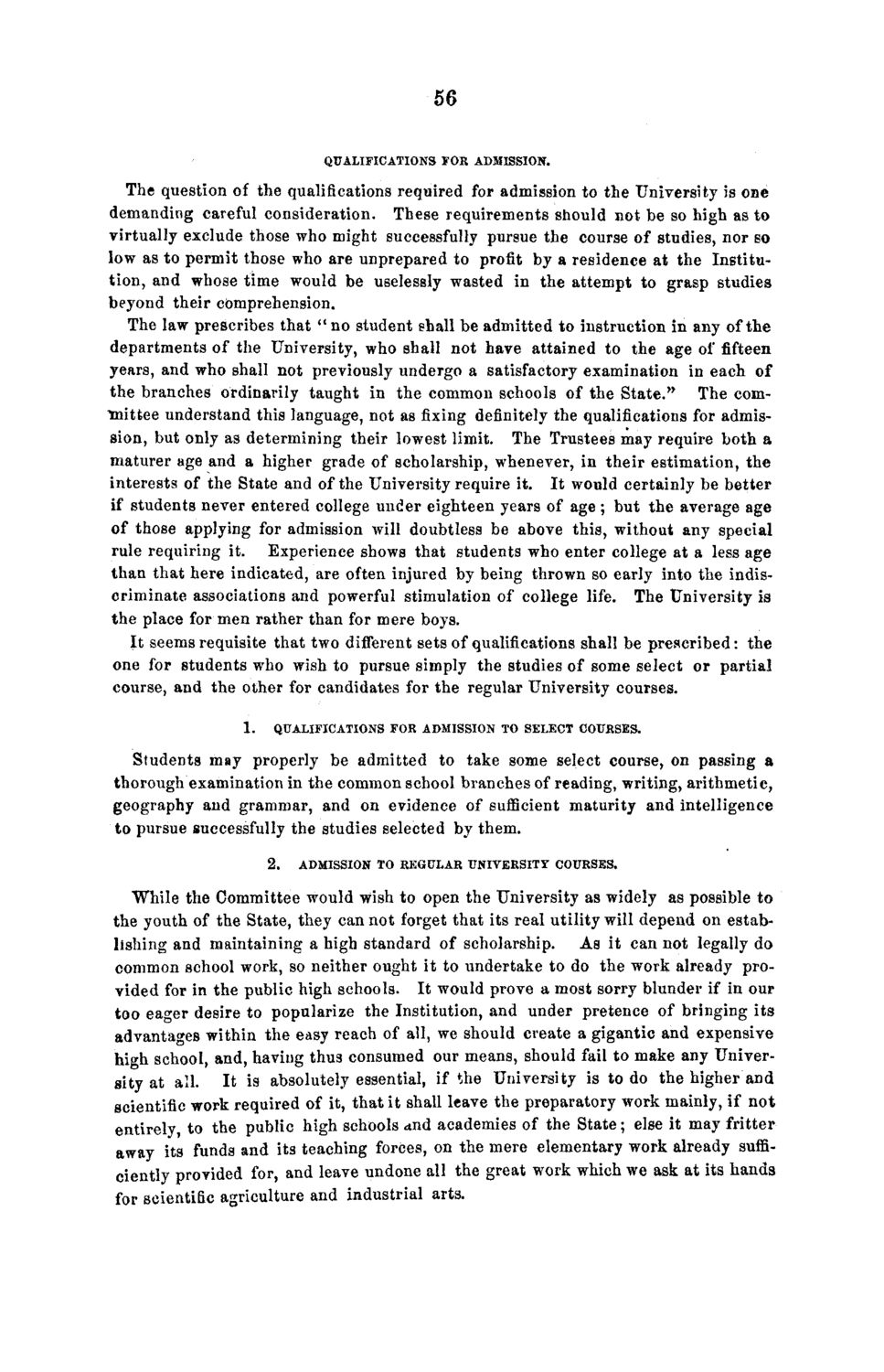| |
| |
Caption: Board of Trustees Minutes - 1868
This is a reduced-resolution page image for fast online browsing.

EXTRACTED TEXT FROM PAGE:
56 QUALIFICATIONS FOR ADMISSION. The question of the qualifications required for admission to the University is one demanding careful consideration. These requirements should not be so high as to virtually exclude those who might successfully pursue the course of studies, nor so low as to permit those who are unprepared to profit by a residence at the Institution, and whose time would be uselessly wasted in the attempt to grasp studies beyond their comprehension. The law prescribes that " n o student shall be admitted to instruction in any of the departments of the University, who shall not have attained to the age of fifteen years, and who shall not previously undergo a satisfactory examination in each of the branches ordinarily taught in the common schools of the State." The committee understand this language, not as fixing definitely the qualifications for admission, but only as determining their lowest limit. The Trustees may require both a maturer age and a higher grade of scholarship, whenever, in their estimation, the interests of the State and of the University require it. It would certainly be better if students never entered college under eighteen years of age ; but the average age of those applying for admission will doubtless be above this, without any special rule requiring it. Experience shows that students who enter college at a less age than that here indicated, are often injured by being thrown so early into the indiscriminate associations and powerful stimulation of college life. The University is the place for men rather than for mere boys. It seems requisite that two different sets of qualifications shall be prescribed: the one for students who wish to pursue simply the studies of some select or partial course, and the other for candidates for the regular University courses. 1. QUALIFICATIONS FOR ADMISSION TO SELECT COURSES. Students may properly be admitted to take some select course, on passing a thorough examination in the common school branches of reading, writing, arithmetic, geography and grammar, and on evidence of sufficient maturity and intelligence to pursue successfully the studies selected by them. 2. ADMISSION TO REGULAR UNIVERSITY COURSES. While the Committee would wish to open the University as widely as possible to the youth of the State, they can not forget that its real utility will depend on establishing and maintaining a high standard of scholarship. As it can not legally do common school work, so neither ought it to undertake to do the work already provided for in the public high schools. It would prove a most sorry blunder if in our too eager desire to popularize the Institution, and under pretence of bringing its advantages within the easy reach of all, we should create a gigantic and expensive high school, and, having thus consumed our means, should fail to make any University at all. It is absolutely essential, if the University is to do the higher and scientific work required of it, that it shall leave the preparatory work mainly, if not entirely, to the public high schools <md academies of the State; else it may fritter away its funds and its teaching forces, on the mere elementary work already sufficiently provided for, and leave undone all the great work which we ask at its hands for scientific agriculture and industrial arts.
| |